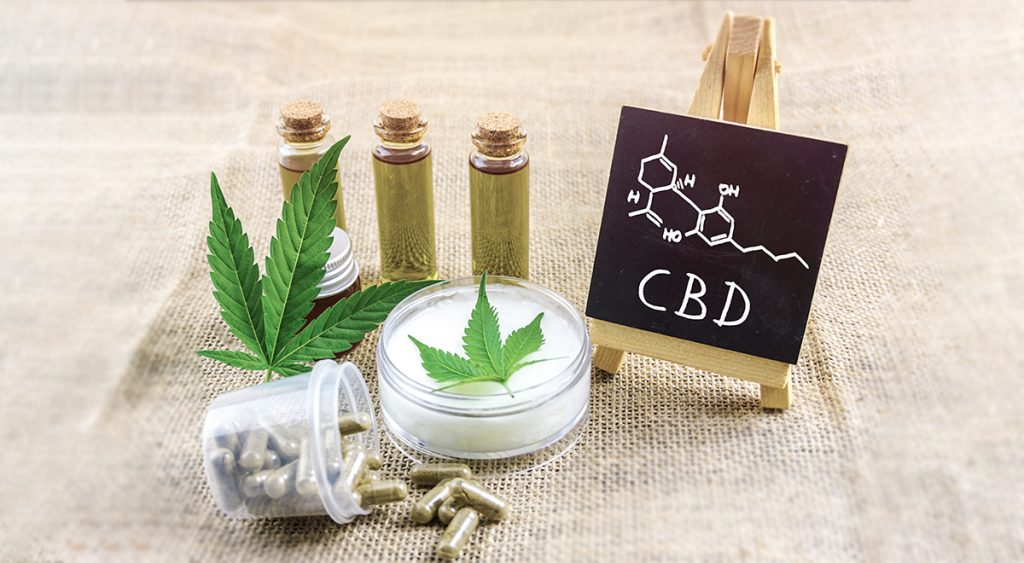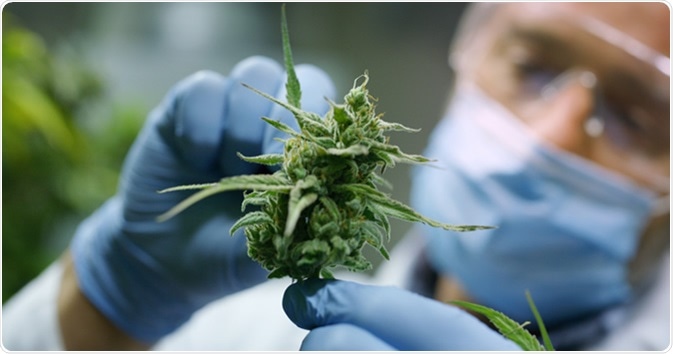
Image Credit: Getty Images
Cannabidiol is a remarkable compound derived from Cannabis sativa plant, commonly known as cannabis or hemp. It is basically cultivated for medicinal properties and it is the second most prevalent bioactive chemical in the Cannabis sativa plant after Δ9-tetrahydrocannabinol (THC).
However, in contrast to its counterpart Δ9-THC, it does not produce any psychoactive effects as it is non intoxicating. According to World Health Organization (WHO), “In humans, CBD exhibits no effects indicative of any abuse or dependance potential.
To date, there is no evidence of public health related problems associated with the use of pure CBD.” Furthermore, according to recent study in the journal Neuropsycopharmacology it is concluded that acute CBD alone is unlikely to significantly impair daily functioning or workplace performance.
HEALTH RELATED BENEFITS OF CANNABIDIOL:
Cannabidiol is known to have analgesic and anti-inflammatory properties mediated by the inhibition of cyclooxygenase and lipoxygenase. Furthermore, it has also proved to have anxiolytic, antiemetic, antipsychotic and neuroprotective antioxidant properties.(1)
In 2018, FDA approved cannabidiol and it is the only FDA approved treatment for patients with Dravet syndrome. Moreover, currently CBD has only been approved for children aged two years and older for the treatment of seizure disorders namely Lennox-Gastaut syndrome and Dravet syndrome.
Furthermore, it is the first and only approved use of Cannabidiol, although currently it is under investigation for its beneficial use in various psychiatric, neurodegenerative, inflammatory and cancerous diseases. Other important beneficial use of CBD is that it helps in overcoming cravings for tobacco and heroine under some conditions. (2)
POTENTIAL SIDE EFFECTS:

Image Credit: Getty Images
FDA has limited data on CBD safety. Therefore using CBD products is not risk free. Some of the commonly observed side effects of CBD include:
- Liver damage
- Interference with other drugs you are taking, which may lead to injury or serious side effects
- Drowsiness or sleepiness
- Diarrhea or changes in appetite
- Changes in mood, such as irritability
- Concomitant use of CBD with sedative medications such as benzodiazepines and opioids can result in severe respiratory depression.
- It may also be associated with increased suicidal thoughts or behaviour.(3)
AVAILABLE FORMS OF CBD:
CBD is available in several different forms. The most commonly available forms of CBD include:
- OIL AND TINCTURES: They are infused with CBD under the tongue with a dropper from where the compound is quickly absorbed.
- TOPICAL CBD: Availaible in the form of lotions, they are used to treat muscle and joint pain. They can also treat some skin conditions like eczema and psoriasis. CBD patches work similarly to nicotine patches.
- CAPSULES AND PILLS: They are used for the systemic treatment of seizure disorders and digestive issues. Recently Food and Drug Administration (FDA) recently approved Epidiolex as the first high potency CBD drug to treat seizure disorders.
- VAPING: Vaporized CBD oil, like e- cigs are inhaled and absorbed directly from the lungs into the blood stream.
CONCLUSION:
From pain management and anxiety relief to skincare and sleep support, Cannabidiol (CBD) offers a promising array of potential health benefits. It has transcended its roots to become a symbol of natural healing and wellness and with the progression of research and awareness, its role in shaping the future of comprehensive healthcare remains a captivating narrative that is undoubtedly worth exploring.
REFERENCES:
- Madeo G, Kapoor A, Giorgetti R, Busardò FP, Carlier J. Update on Cannabidiol Clinical Toxicity and Adverse Effects: A Systematic Review. Current neuropharmacology. 2023;21(11):2323-42.
- Meissner H, Cascella M. Cannabidiol (CBD) [Updated 2023 Jun 4]. In: StatPearls [Internet]. Treasure Island (FL): StatPearls Publishing; 2024 Jan-
- Madeo G, Kapoor A, Giorgetti R, Busardò FP, Carlier J. Update on Cannabidiol Clinical Toxicity and Adverse Effects: A Systematic Review. Curr Neuropharmacol. 2023;21(11):2323-2342. doi: 10.2174/1570159X21666230322143401. PMID: 36946485; PMCID: PMC10556379.
Found our content helpful? Read more.


[…] CANNABIDIOL – Unlocking Nature’s secret […]